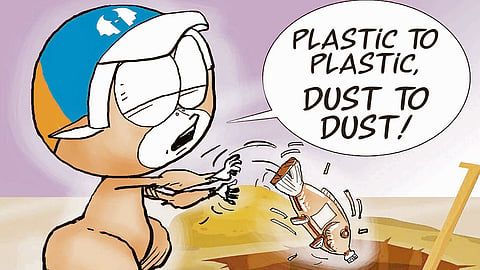
- NEWS
- the EDIT
- COMMENTARY
- BUSINESS
- LIFE
- SHOW
- ACTION
- GLOBAL GOALS
- SNAPS
- DYARYO TIRADA
- MORE

Those iconic little fish-shaped soy sauce containers used in Asian restaurants to flavor sashimi, sushi and other oriental dishes will disappear in the state of South Australia beginning this month.
“Each container is used for just seconds, yet remains in the environment for decades or centuries if littered,” environment minister and deputy premier for South Australia, Susan Close, told BBC earlier this month to explain the ban.
South Australia’s ban on the fish-shaped soy sauce containers, invented by Teruo Watanabe in Japan in 1954, is mandated under a local law passed in 2023 to “reduce pollution, cut carbon emissions, and protect marine life,” BBC reports.
Experts said the container is difficult to recycle because of its size, so its distribution and sale will be outlawed.
Meanwhile, any discards from North Korean leader Kim Jong Un disappear wherever he left them.
A Russian reporter who covered the face-to-face meeting of President Vladimir Putin and Kim in Beijing, China on 3 September witnessed how the latter’s staff fastidiously cleaned for two hours the room where the two leaders briefly talked.
The cleaners removed the drinking glass Kim used and even wiped off surfaces he touched, according to reporter Alexander Yunashev, Channel News Asia (CNA) reports. The cleaners also carried trash bags.
In Kim’s meeting with US President Donald Trump in Hanoi, Vietnam in 2019, the North Korean leader’s cleaners even took out a mattress from the room where the two met, according to CNA.
All traces of Kim wherever he goes, including his hair and skin tags, disappear when he leaves, as his cleaners remove and destroy everything to prevent spies from testing any samples to get clues about the state of his health, according to South Korean and Japanese intelligence agencies.
